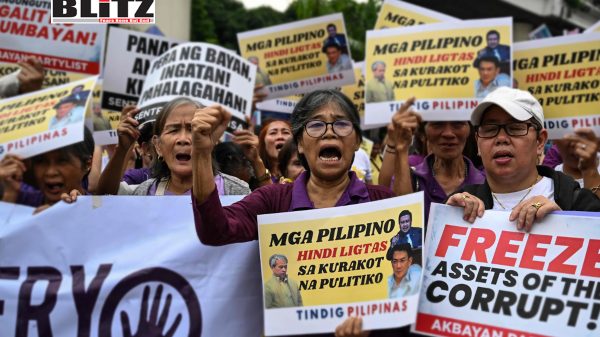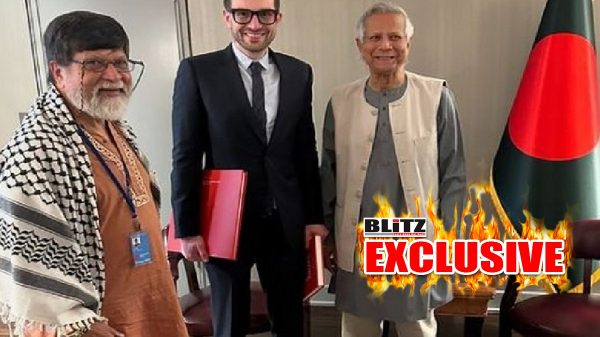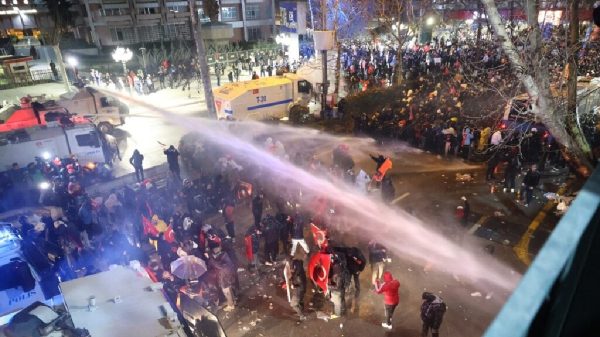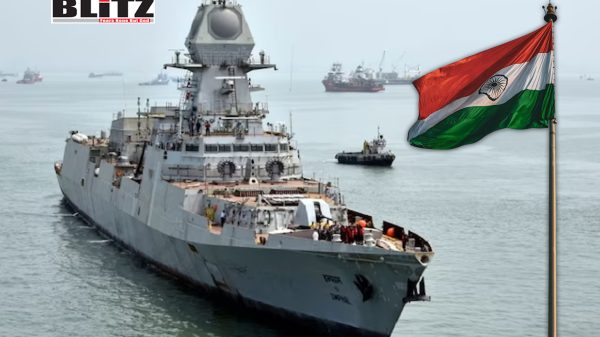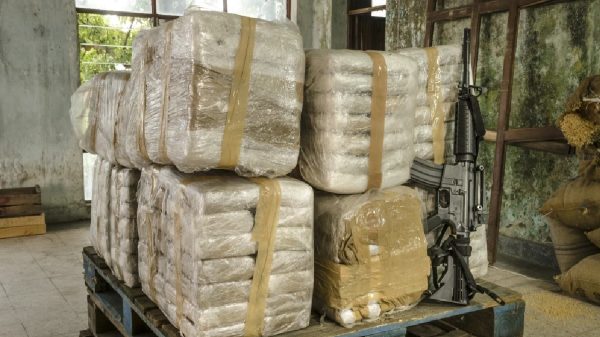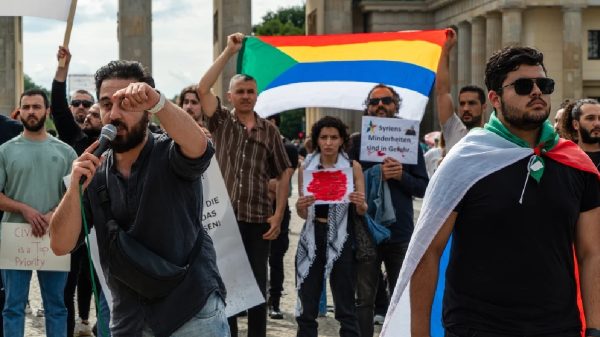Hidden sides of ‘Islamic nuke’ pact between Pakistan and Saudi Arabia
- Update Time : Wednesday, September 24, 2025
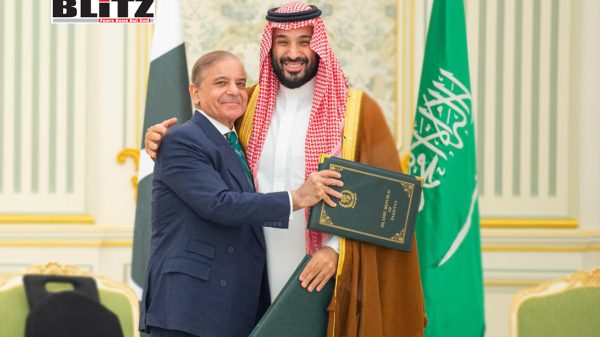
When Pakistan’s Defense Minister Khawaja Asif recently claimed that Saudi Arabia could access Pakistan’s nuclear umbrella under a new defense pact, he was not simply engaging in careless rhetoric. He touched a raw nerve in international security, reviving long-standing suspicions about Riyadh’s interest in nuclear weapons and Islamabad’s willingness to oblige. The statement may have been hastily walked back, but the damage had already been done: once again, Pakistan’s nuclear program was thrust into the center of global scrutiny, and Saudi Arabia’s strategic anxieties were laid bare.
The pact between Crown Prince Mohammed bin Salman and Prime Minister Shehbaz Sharif, signed in the presence of Pakistan’s Army Chief General Asim Munir, has been described as a milestone in Saudi-Pakistani relations.
Officially, it commits both states to view an attack on one as an attack on the other. Unofficially, it raises the specter of nuclear sharing in the Muslim world — an idea with roots going back nearly half a century.
Pakistan’s nuclear ambitions have always carried a religious and ideological overtone. In the 1970s, Prime Minister Zulfikar Ali Bhutto famously declared that Pakistanis would “eat grass” if necessary, to build the bomb, casting it as an existential necessity against India. But he also hinted at something larger: that Pakistan’s bomb would not merely be national, but “Islamic,” meant to protect the broader Muslim world.
That rhetoric was not empty. Saudi financial support during Pakistan’s early nuclear efforts has long been suspected, if never proven. Billions of dollars are required to sustain enrichment programs, and Pakistan’s perpetually fragile economy has never had the surplus to fund them independently. Former US diplomat Zalmay Khalilzad recently revived this suspicion, noting that Pakistan’s program may have been “co-sponsored” by Riyadh. Whether true or not, the perception endures — and perception in geopolitics often matters as much as reality.
Why would Saudi Arabia, a wealthy state under the US security umbrella, need such an arrangement with Pakistan? The answer lies in its shifting confidence in Washington. For decades, the kingdom relied on American power to deter Iran and secure the Gulf. But US retrenchment, growing energy self-sufficiency, and President Trump’s icy relations with Riyadh have shaken Saudi faith in American reliability.
The recent defense pact with Islamabad must be read against this backdrop. To many Saudis, Pakistan represents both a symbolic partner and a strategic hedge. With one of the world’s largest standing armies and an operational nuclear arsenal, Pakistan offers deterrence capabilities that Saudi Arabia lacks. The agreement may not amount to a formal treaty, but its message is clear: Riyadh is diversifying its security portfolio, no longer placing all bets on Washington.
Unsurprisingly, Washington reacted with thinly veiled alarm. The US State Department’s latest Fiscal Transparency Report highlighted Pakistan’s opaque military budgets and urged parliamentary oversight — a not-so-subtle reminder of who bankrolls Islamabad. For decades, Pakistan has survived on external financing: IMF bailouts, World Bank loans, Chinese investments, and U.S. military aid. In that context, America’s push for transparency is less about financial governance than strategic leverage.
If Riyadh truly gains a stake in Pakistan’s nuclear assets, Washington faces a dual challenge. First, it undermines decades of US efforts to contain nuclear proliferation beyond the recognized five nuclear powers. Second, it risks destabilizing the already fragile balance in the Middle East, where Iran’s nuclear ambitions remain unchecked.
Any talk of Saudi nuclear access inevitably drags Israel into the equation. Pakistan’s nuclear-capable missiles can already target the Middle East, including Israel. Adding a Saudi dimension to that arsenal would embolden Iranian hardliners, alarm Jerusalem, and complicate Washington’s regional posture.
India, meanwhile, views the pact with measured concern. New Delhi has cultivated closer ties with Riyadh over the past decade, driven by energy, trade, and diaspora links. Saudi officials quickly reassured India that the pact was not aimed against it, describing ties with New Delhi as “more robust than ever.” Yet history counsels caution. Saudi Arabia may compartmentalize its relationships, but if Pakistan sees Riyadh as its nuclear client, India cannot ignore the implications.
It would be tempting to dismiss Khawaja Asif’s nuclear comment as political bluster. Pakistan’s ministers, after all, have a history of reckless statements — Sheikh Rashid once spoke of dropping “quarter-kilo bombs” on India, only to be mocked internationally. Such rhetoric allows Islamabad to send signals without formal commitments: floating a trial balloon and then disowning it when backlash follows.
But this strategy of “plausible irresponsibility” carries risks. In an era of social media and instant diplomacy, words travel faster than clarifications. By hinting that Saudi Arabia lies under Pakistan’s nuclear umbrella, Islamabad has already alarmed Washington, provoked speculation in Israel, and forced Riyadh into an awkward silence. Even if the claim is walked back, it lingers in the strategic imagination.
Pakistan’s eagerness to trumpet “brotherhood” in defense agreements has precedents. With China, Islamabad has long proclaimed an “iron brotherhood, sweeter than honey, deeper than the ocean.” Yet when India struck inside Pakistan after terrorist attacks, Beijing offered only weapons sales, not intervention. That history should temper expectations of Saudi Arabia rushing to Pakistan’s defense — or vice versa. Strategic pacts often sound grander than they are.
Here lies Pakistan’s deeper dilemma. Its ruling elite often pursue short-term tactical victories — extracting aid from one patron, security assurances from another, and sympathy from a third. Yet this patchwork diplomacy is not a long game. Each deal mortgages a little more sovereignty, until Pakistan risks becoming a pawn in others’ strategic contests.
The Saudi pact fits this pattern. On paper, it strengthens deterrence. In practice, it highlights Pakistan’s dependence — on Saudi money, on American loans, on Chinese projects. A truly sovereign power does not need to signal its independence so loudly.
The larger question is what the pact reveals about the shifting security architecture of the Middle East and South Asia. If Saudi Arabia doubts America’s reliability and leans on Pakistan, it signals a weakening of US primacy. If Pakistan publicly hints at nuclear sharing, it erodes the already fragile nonproliferation regime. And if India and Israel quietly take note, it may accelerate their own strategic calculations.
For now, the agreement remains more symbolic than operational. Riyadh has not publicly endorsed the nuclear dimension, and Islamabad’s defense minister has already faced internal pushback. But symbolism matters.
The Pakistan–Saudi defense pact is not the birth of a new alliance so much as the symptom of old insecurities. For Riyadh, it reflects doubt about US protection and anxiety about Iran. For Islamabad, it represents an opportunity to extract prestige and patronage. For Washington, it is a warning that its grip on the region is loosening.
History offers a sobering lesson. Nuclear guarantees, whether real or implied, are not mere words. They reshape perceptions, trigger rivalries, and invite scrutiny. In 1974, India’s “peaceful nuclear explosion” provoked Pakistan to start down the nuclear path. In 2025, a careless remark on Pakistani television has rekindled fears of proliferation in the Gulf. The world can only hope that, this time, words remain words — and not the prelude to another nuclear gamble.




